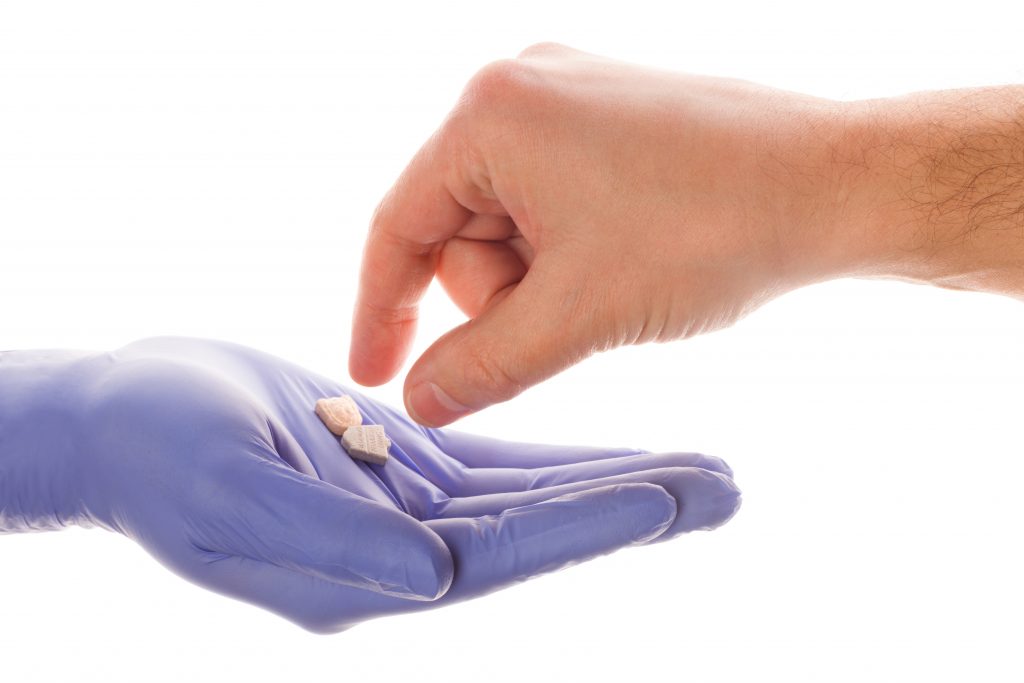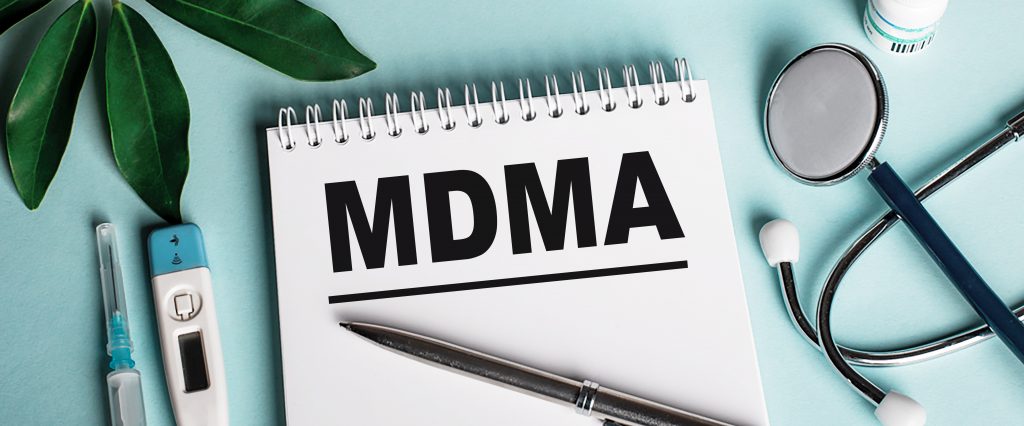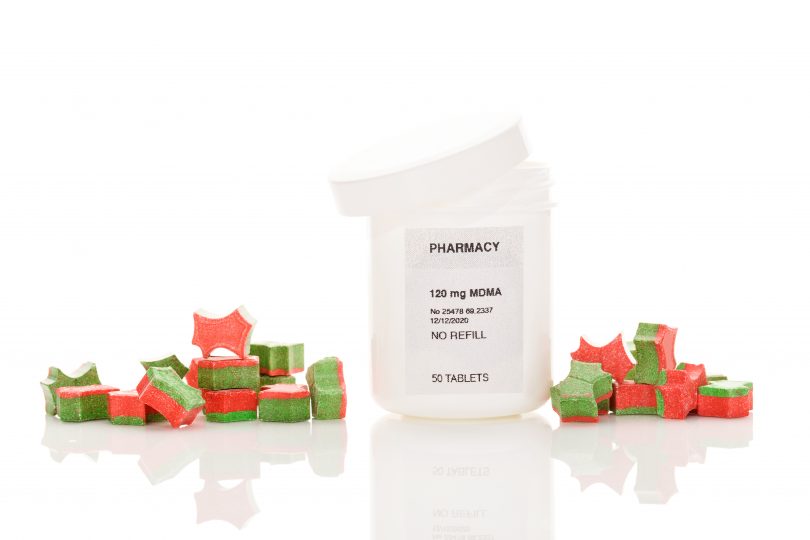For sufferers of PTSD, the world can be a scary place. Modern medicine has attempted many ways to treat the disorder ranging from medications to therapy tactics, but they don’t always work. Building evidence shows that alternative remedies like the psychedelic drug MDMA might be a better long-term answer to treat PTSD.
Are you a THC lover? The best thing about being on team THC is that the variety is opening up. Not only is there the standard delta-9 THC, but now there’s delta-8 THC as well, which has the same general medical benefits, but with less anxiety and less psychoactive effect. We’ve got great Delta-8 THC deals here, so go on and give it a shot.
What is PTSD?
Post traumatic stress disorder is a psychiatric disorder, which means it is diagnosed subjectively. It effects people who have gone through a traumatic experience, whether they were actually a part of it, or just witness to it. This can include things like being physically attacked, witnessing atrocities of war, living through natural disasters, or being the target of bullying or psychological abuse. PTSD is diagnosed separately from other anxiety-based mental illnesses based on the experiencing of a traumatic event.
PTSD was known as ‘shell shock’ during World War I, and was referred to as ‘Battle Fatigue’ after world war II. It is associated with disturbing, and often very intense thoughts concerning past traumas. This can include reliving the event in flashbacks or nightmares, fear, sadness, anger, and feelings of detachment and estrangement from other people. Sufferers of PTSD often display strong negative reactions to situations that others would find non-triggering, and may avoid situations or people entirely that remind them of their past trauma.
Subjective diagnoses make for a difficult time adding up statistics, however, according to psychiatry.org, approximately 3.5% of adults in the US suffer from PTSD per year, and its estimated that about one out of every eleven people will experience PTSD in their lifetime. Women are the predominant sufferers, outnumbering men 2:1, and the three ethnic groups where PTSD symptoms show up the most in the US, are Latinos, African Americans, and Native Americans – all minorities that have experienced a lot of overall violence, intolerance, and general contempt aimed at them throughout history.

What is MDMA?
3,4 methylenedioxymethamphetamine, known colloquially as ecstasy, or molly (which is slang for ‘molecular’), is a man made psychoactive drug which is derived from the safrole oil, found primarily in sassafras plants. MDMA has properties of both hallucinogens and stimulants, acting primarily through its interaction with serotonin receptors. It forces the brain to released large amounts of the neurotransmitter, while blocking its reuptake to aid in extra absorption. MDMA comes as either pressed pills, or as a powder that can range from brown to white.
MDMA is known for promoting a feeling of connectedness between people, of reducing fear and anxiety, and increasing feelings of empathy. It was created by Merck Pharmaceutical back in 1912, however its effects were not well understood until the 1970’s when chemist Alexander Shulgin created a new method to synthesize the drug, and tested it out along with a few of his psychotherapist friends. This is around when it started being used in psychotherapy practices, as a treatment method coupled with therapy sessions, known as psychedelic-assisted therapy.
Despite showing usefulness in dealing with mental disorders, MDMA was illegalized in 1985. In 1984, President Ronald Reagan’s administration enacted the Comprehensive Crime Control Act which allowed for emergency banning of drugs by the government. When the subject of MDMA came up in 1985, after other psychedelic drugs had already been illegalized, this act was used to immediately illegalize the compound by placing it in Schedule I of the Convention on Psychotropic Substances treaty, ending therapeutic uses of it.
The illegalization of psychedelics started with smear campaigns during the Vietnam war which culminated in the passage of the Staggers-Dodd bill in 1968 illegalizing LSD and psilocybin specifically. This was followed up with the creation of the Convention on Psychotropic Substances treaty in 1971 which outlawed most of the rest, with the exception of MDMA, which was outlawed later.
While the topic is obviously a controversial one, statements made by John Ehrlichman – former Assistant to the President for Domestic Affairs under President Nixon in 1994, made evident that the war on drugs wasn’t necessarily about drugs at all. Creating further concerns about why drugs like MDMA were illegalized. In his statement he claimed:
“The Nixon campaign in 1968, and the Nixon White House after that, had two enemies: the antiwar left and black people… We knew we couldn’t make it illegal to be either against the war or black, but by getting the public to associate the hippies with marijuana and blacks with heroin, and then criminalizing both heavily, we could disrupt those communities. We could arrest their leaders, raid their homes, break up their meetings, and vilify them night after night on the evening news. Did we know we were lying about the drugs? Of course we did.”

MDMA to treat PTSD
So, what do we really know about the ability of MDMA to treat PTSD symptoms? In 2020, a systematic review was released that investigated articles published up until the end of March 2019, that used key terms like ‘treatments for PTSD’ and ‘MDMA pathway’. All articles came through PubMed and ScienceDirect.
It was found in the identification and review of these articles (and their sources) that many small scale investigations had been done that show MDMA aids in reducing psychological trauma. The review authors made a very important point, though. They emphasized that none of the research showed MDMA as a cure for PTSD, as that specifically had not been researched. What the review was identifying, and what had been studied, was the usefulness of MDMA assisted psychotherapy, and its ability to help people who have been unable to resolve their trauma issues through other avenues.
The big story today with MDMA revolves around currently in-progress trials. As of last summer, the Multidisciplinary Association for Psychedelic Studies (MAPS) had begun Phase 3 of clinical trials into MDMA. MAPS is conducting double-blind, placebo-controlled, randomized trials at multiple sites, testing the safety and efficacy of MDMA-assisted therapy for PTSD. The participants are 200-300 PTSD sufferers who are all 18+ in age, but with varied histories to produce their traumatic experiences.
These trials follow the Phase II trials which had promising outcomes, and are the last hurdle required by the US Food & Drug Administration (FDA) in order to be assessed for legalization in the treatment of PTSD. Should it get the pass, MDMA would be able to be prescribed along with therapy, in outpatient settings with residential stays – to allow users to have their experience in a safe and controlled environment.
How likely is the FDA to approve MDMA to treat PTSD? It is, after all, a psychedelic drug in Schedule I, which defines it as highly dangerous with no therapeutic value. Apparently, back in 2017, the FDA identified MDMA as a ‘breakthrough therapy’ for PTSD.
The FDA defines a ‘breakthrough therapy’ as a “drug that treats a serious or life-threatening condition and preliminary clinical evidence indicates that the drug may demonstrate substantial improvement on a clinically significant endpoint(s) over available therapies.” This definition is meant to help speed up research progress in order to get products to market. In 2019, the same designation was made by the FDA for psilocybin in magic mushrooms.

More about MAPS Phase 3 trials
Phase 3 trials were designed according to an agreed upon Special Protocol Assessment between MAPS and the FDA to make sure trials and outcomes would be in line with regulation. The trials take place at 15 different sites between three countries: the US, Canada, and Israel. Participants receive three therapy sessions with either MDMA or placebo over a 12-week therapy period, along with three preparatory sessions and three integration sessions, without any drugs. The MDMA/placebo sessions are spaced every 3-5 weeks.
The (CAPS-5) – Clinician-Administered PTSD Scale – is the primary measurement tool for success in the study. This is a loosely structured interview used in most PTSD trials, and requires assessment by raters who are ‘blinded’, or do not know where the study participant falls in terms of actual drug or placebo. The study investigators will use other measurement tools as well including, but not limited to: Beck Depression Inventory and Inventory of Psychosocial Functioning.
‘Phase 3’, of course, implies that this is not the beginning of the study. Phase 2 findings of the study indicate the following about MDMA and its ability to treat PTSD: it can cause a reduction in fear and defensiveness; increase introspection and communication, as well as empathy and compassion; and generally improves the therapeutic experience of those suffering from PTSD. Phase 2 consisted of 107 patients.
Two months following the MDMA-assisted treatment in Phase 2, 61% of patients were no longer identified as having PTSD. One year following treatment, 68% no longer qualified as PTSD. All participants had chronic PTSD that was treatment resistant, and had been suffered from for an average of almost 18 years.
Conclusion
It’s getting heated in the race to see which psychedelic drug gets the first US medical legalization (as the US so often sets the standard for other parts of the world). Psilocybin from magic mushrooms is certainly making waves, but it looks like MDMA might take the win. With the FDA already drooling at the mouth to approve, and the pharmaceutical world getting its ducks in a row, it looks like very shortly MDMA will officially be approved to treat PTSD, with a change in global legalization measures likely to follow.
Hello and welcome to CBDtesters.co, your one-stop-shop for all cannabis-related news worldwide. Keep up with us to stay on top of the ever-changing world of legal marijuana, and sign up to our newsletter so you’re always in the know!
Resources
Merry Cannabis! Christmas and Marijuana
Forced Legalizations: EU & France Battle it out Over CBD Laws
Florida Bill Aims to Legalize Medical Magic Mushrooms
Is CBD A Good Solution For PTSD?
What is DELTA 8 THC (FAQ: Great resource to learn about DELTA 8THC)
The New Italian Cannabis Contradiction
Delta 8 Flowers – Milder Than Cannabis, But Very Relaxing and Uplifting
The CBD Flowers Weekly newsletter (your top resource for all things smokable hemp flowers). How to choose Delta-8 THC flowers? Delta-8 THC Flowers: Everything You Need To Know.
The Medical Cannabis Weekly newsletter (International medical cannabis business report)
How Criminal Organizations Are Dealing with Corona
The Delta 8 Weekly Newsletter (All you need to know about Delta 8 thc) and the Best Delta 8 THC Deals. Best Delta-8 THC Vape Bundles – Winter 2021 Denver Residents Vote to Decriminalize “Magic Mushrooms”
Cannabis and the South: How Things Change Plant Power: Everyday Plants That Activate the Endocannabinoid System Ask A Doctor – General CBD/PTSD Discussion
The New Rise of Medical Psychedelics
New Jersey Wants Home Cultivation for Cannabis Is Medical Cannabis A Solution For Veteran PTSD Suicide Epidemic? Nature’s Magic – The Health Benefits of Psilocybin Mushrooms







